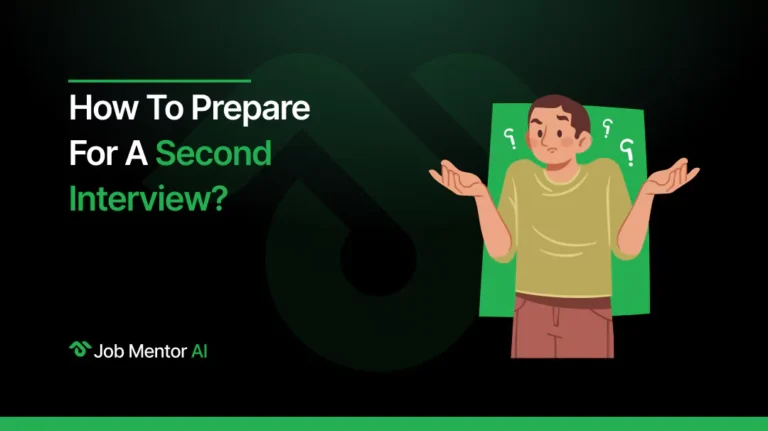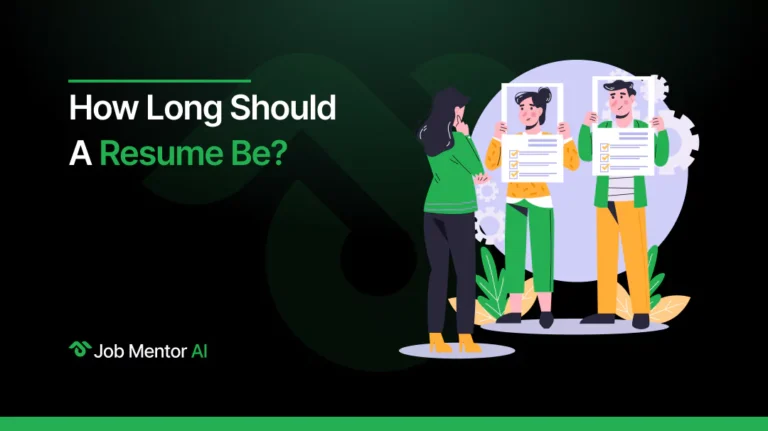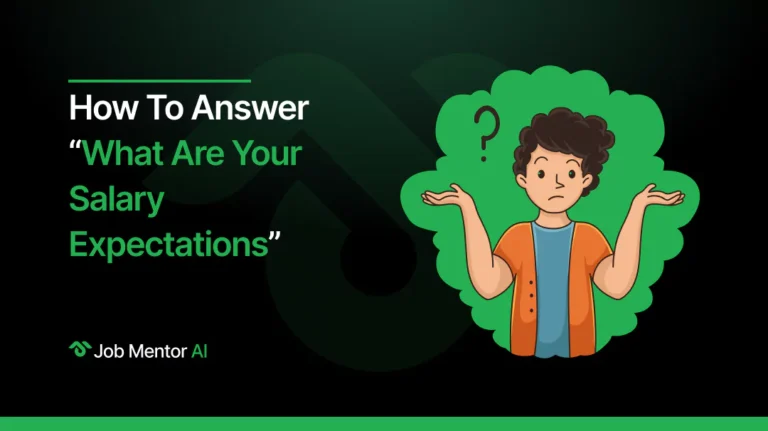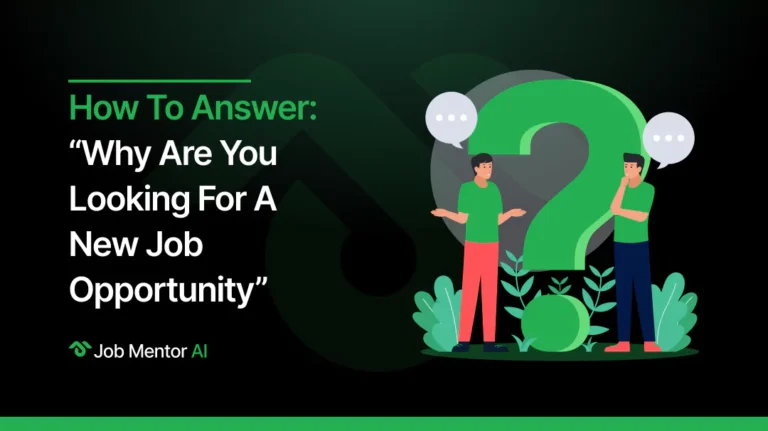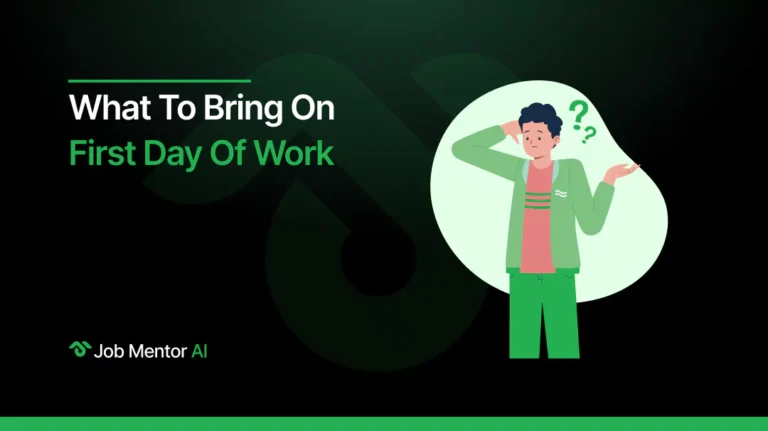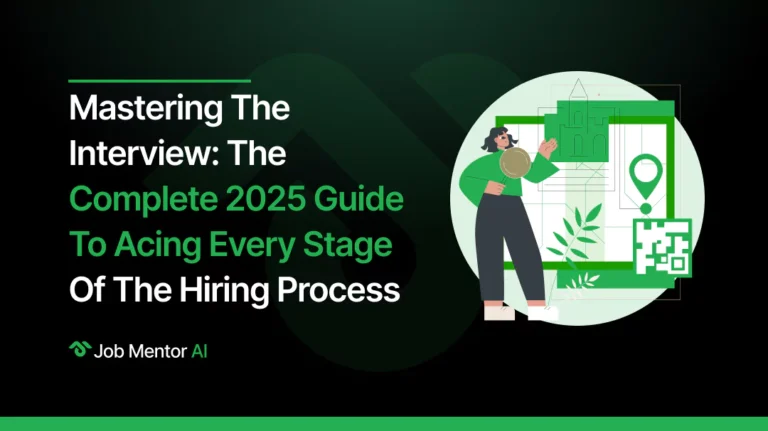Getting an interview for your dream job is exciting, but it can also feel stressful. A strong resume and cover letter may get you an interview, but your performance during the interview decides if you get the job. Many job seekers worry about what to say, how to act, and whether they are truly prepared.
A well-prepared candidate stands out. Employers notice when someone is confident, answers questions well, and understands the company. That is why preparation is important.
This guide will help you prepare for a job interview the right way. You will learn what to expect, how to practice, and ways to make a strong impression. With the right approach, you can walk into your interview feeling ready and leave with confidence.
What To Expect In An Interview
An interview is a conversation between you and the employer. It is your chance to show why you are the right candidate for the job. The employer wants to see if you fit their team and company. Knowing what happens in an interview can help you feel prepared and confident.
Most interviews start with introductions. The interviewer may ask about your background and experience. This part is your chance to make a good first impression. A confident greeting and a friendly smile can help set a positive tone.
After introductions, the interviewer may ask common questions. They might ask about your strengths, work experience, or how you handle challenges. In some cases, the interviewer may give you a task. This could be a short test, a case study, or a problem to solve. If you are applying for a technical job, you might get a skills test related to the role.
At the end of the interview, you will get a chance to ask questions. You can ask about the team, company goals, or what success looks like in this role. A good question can leave a strong impression on the interviewer.
Every interview is different, but most follow a similar structure. By knowing what to expect, you can feel more prepared and ready to show your best self.
Types of Interviews
Interviews can happen in different ways, depending on the job and company. Knowing the types of interviews can help you prepare better. Each type has its format and expectations. Some of the types of interviews are:
- Face-to-Face Interview
- Phone Interview
- Video Interview
- Assessment Center Interview
- Technical Interview
1. Face-to-Face Interview
This is the most common type. You meet the interviewer in person at the company’s office. They may ask about your experience, skills, and how you handle different situations. In some cases, more than one person may be in the room. These are called panel interviews. In group interviews, multiple candidates are interviewed together. The key is to stay calm, listen carefully, and answer with confidence.
2. Phone Interview
Many employers start with a phone interview before inviting candidates for a face-to-face meeting. This helps them decide who moves to the next round. The interviewer may ask about your background, availability, and salary expectations. Since they cannot see you, your voice and tone matter. Speaking clearly and answering confidently can make a good impression.
3. Video Interview
A video interview is like a face-to-face interview, but it happens online. Some video interviews are live, where you speak with an interviewer in real time. Others are on-demand video interviews, where you answer questions that appear on the screen. A good internet connection, a quiet space, and professional body language are important in this type of interview.
4. Assessment Center Interview
Some companies use assessment centers to test skills through different exercises. You may take part in group discussions, case studies, or presentations. Employers use this method for jobs that need strong teamwork and problem-solving skills. Preparing for this type of interview means being ready to think quickly and work well with others.
5. Technical Interview
Technical interviews are common in IT, engineering, and finance jobs. They test your problem-solving skills, technical knowledge, and ability to handle real-world tasks. The interviewer may ask you to solve coding problems, explain complex concepts, or work on a project. Reviewing key topics and practicing with sample problems can help you prepare.
Practice Job Interviews
Practicing before an interview can make a big difference. It helps you feel more confident, improve your answers, and reduce nervousness. Many employers ask similar questions, so preparing in advance gives you an advantage.
One of the best ways to practice is by doing mock interviews. You can ask a friend, family member, or mentor to act as the interviewer. They can ask common questions while you practice your answers. Another useful method is recording yourself. You can use your phone or computer to answer questions and review how you sound. This can help you notice areas where you need to improve.
Using AI-powered tools, such as AI mock interview practice and AI interview answer generator , can provide real-time feedback. These tools can analyze your responses and suggest improvements. Using AI for practice can help you refine your answers and identify weak points before the actual interview.
The more you practice, the better you get. You will learn to answer questions efficiently, stay calm, and present yourself well. With the right preparation, you can walk into your interview feeling ready and confident.
Ways to Make a Good Impression
Making a good impression in an interview is important. It shows the employer that you are professional, confident, and the right person for the job. Small details can make a big difference in how the interviewer sees you.
- Dress Professionally: The way you dress affects the first impression. Wearing clean, well-fitted, and professional clothes shows that you respect the interview process.
- Be Punctual: Being on time is one of the easiest ways to show professionalism. It is best to reach the interview location at least 10 to 15 minutes early. For virtual interviews, setting up your camera and internet connection in advance helps avoid last-minute issues.
- Show Positive Body Language: Your body language says a lot about your confidence. Employers look for candidates who are genuinely interested in the job. Sitting straight, making eye contact, and smiling can make you appear more engaged.
- Listen Carefully: Listening is just as important as answering questions. Paying close attention to what the interviewer says helps you respond in a thoughtful way. If you do not understand a question, asking for clarification is better than guessing.
- Speak Clearly and Confidently: Your tone of voice can influence how your answers are received. Simple manners, like greeting the interviewer with a smile, saying thank you, and addressing them respectfully, create a positive impression. If you feel nervous, taking a deep breath before answering can help.
- Follow Up After the Interview: A follow-up email thanking the interviewer for their time is a great way to leave a lasting impression. This email can also be a chance to briefly restate your interest in the role.
Interview Preparation Tips
Preparing for an interview is essential for success. The more you prepare, the more confident you will feel. Some of the simple tips to help you prepare for job interview are:
- Research the Company
- Understand the Job Role
- Prepare for Common Questions
- Dress Well
- Bring the Right Documents
- Practice Your Answers
- Get Enough Rest
- Stay Calm and Confident
- Prepare Questions for the Interviewer
1. Research the Company
Before the interview, take time to learn about the company. Visit their website, read recent news, and understand their values. Knowing about the company helps you answer questions in a way that shows you are truly interested in the job. It also helps you ask relevant questions at the end of the interview.
2. Understand the Job Role
Make sure you understand the job you are applying for. Read the job description carefully. Focus on the skills, experience, and responsibilities required. Be ready to explain how your background matches the job. The more you can show you are the right fit, the better your chances.
3. Prepare for Common Questions
Interviewers often ask similar questions. Prepare for the most common ones, such as “Tell me about yourself,” “Why do you want to work here?” and “What are your strengths and weaknesses?” Practice answering these questions, but avoid memorizing your answers. You want to sound natural and authentic.
4. Dress Well
Your appearance matters in an interview. Even if the company has a casual dress code, it is always better to dress slightly more formal for the interview. Wear clean, professional clothes that make you feel confident. When you look your best, you feel your best.
5. Bring the Right Documents
Always bring several copies of your resume, cover letter, and any other documents the company might need. If the interview is virtual, make sure your technology works well and that your environment is quiet and professional.
6. Practice Your Answers
Think about the questions you might be asked and practice answering them out loud. You can ask a friend or family member to help by acting as the interviewer. Practice will make your answers sound more confident and clear.
7. Get Enough Rest
Make sure you get a good night’s sleep before the interview. Being well-rested helps you stay focused and alert during the interview. When you feel fresh, you can think clearly and respond better to questions.
8. Stay Calm and Confident
Interviews can be nerve-wracking, but staying calm is key. Take deep breaths if you feel nervous. Remember, the interview is a two-way conversation. The employer wants to learn about you, but you also want to learn about the company and the role. Stay positive and confident.
9. Prepare Questions for the Interviewer
At the end of the interview, you will likely be asked if you have any questions. This is your chance to show your interest in the job and company. Ask questions about the company culture, team structure, or the next steps in the hiring process.
Conclusion
Preparing for a job interview takes time, but the effort will be worth it if you get your dream job. When you research the company, practice your answers, and build confidence, you increase your chances of success. Every step, from staying calm and confident to asking thoughtful questions, helps you stand out. With the right approach, you can walk into your interview and secure the job.
Want to practice in a real interview setting? Job Mentor AI, an AI Interview Assistant, helps you prepare with mock interviews, tailored questions, and instant feedback. Plus, use the live interview support to get instant, smart suggestions during your interview and respond with confidence. Try it today and gain the confidence to ace your next interview!
Table of Contents
Frequently Asked Questions
How early should I start preparing for a job interview?
You should start preparing at least a few days before your interview. This gives you enough time to research the company and practice common questions. If possible, start preparing as soon as you get the interview invitation to feel more confident.
What are the most common job interview questions?
Some of the most common job interview questions are:
- Tell me about yourself.
- Why do you want this job?
- What are your strengths and weaknesses?
- Where do you see yourself in five years?
- Why should we hire you?
How can I make a great first impression in an interview?
You can make a great first impression in an interview by following these steps:
- Dress appropriately for the job.
- Arrive on time or a few minutes early.
- Greet the interviewer with a firm handshake and a smile.
- Show enthusiasm and confidence through your body language.
- Listen carefully and respond clearly to questions.
How can I practice for a job interview?
You can practice for a job interview by:
- Rehearsing answers to common interview questions.
- Practicing in front of a mirror to improve body language.
- Recording yourself to check your tone and clarity.
- Using AI tools like Job Mentor AI for mock interviews and instant feedback.
Should I ask questions at the end of an interview?
Yes, asking questions shows interest and helps you learn more about the company. You can ask questions like:
- What does a typical day in this role look like?
- How do you measure success in this position?
- What are the next steps in the hiring process?
How can I improve my communication skills for an interview?
Some of the tips to improve your communication skills for an interview are:
- Speak clearly and at a steady pace.
- Practice active listening by focusing on the interviewer.
- Use simple and direct answers.
- Avoid filler words like ‘um’ and ‘uh’.
How do I follow up after an interview?
You can follow up after an interview by sending a thank-you email within 24 hours of your interview. Express appreciation, mention something you discussed, and restate your enthusiasm for the job.
How can Job Mentor AI help me prepare for an interview?
Job Mentor AI offers mock interviews, tailored questions, and real-time feedback to improve your answers. You can also use the Live Interview Support, which provides instant, smart suggestions during your interview to help you respond with confidence.


